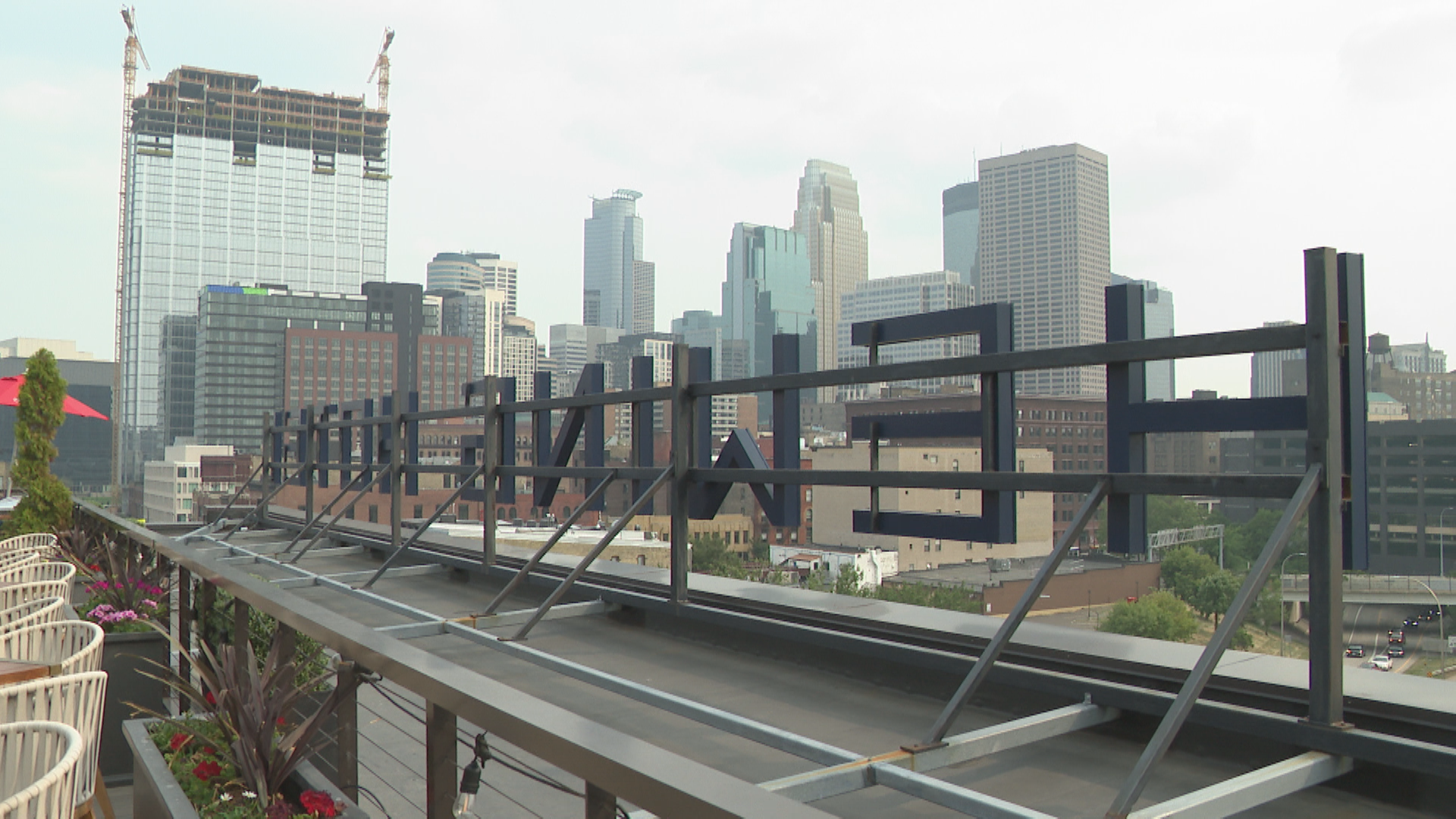MINNEAPOLIS — James Keig needed to get away this summer.
So the South Dakota native hopped on Interstate 90 heading east toward Sioux Falls, crossed the border into Minnesota, and eventually cut north for Minneapolis to cap a 300-mile road trip.
He settled at the Hewing Hotel, a fashionable spot in the North Loop with a rooftop lounge and beautiful view of the skyline.
"Coming to visit some family, after a long time stuck at home in the Corn Palace: Mitchell, South Dakota," Keig said on the sidewalk outside of his hotel. "Happy to see a city for the first time in a year and a half or so."
Travelers like Keig are playing a crucial role in the slow but encouraging recovery of the hotel industry in Minneapolis, where occupancy rates plummeted to an astonishing 3.4% in April 2020 at the onset of the pandemic, according to Meet Minneapolis. Those rates improved in early 2021 and grew at a steady pace after the COVID-19 vaccine became widely available, climbing to 37.7% in July 2021 and now 42% during the first half of August 2021.
Those numbers are even higher on weekends, Meet Minneapolis data shows. Over the previous six weekends, hotels in Minneapolis have averaged an occupancy rate of 57%. On August 14, a Saturday, the rate jumped to 69.5%, the highest since the pandemic.
Naomi Thompson, the director of lifestyle at the Hewing Hotel, said this summer that her hotel has been selling out on weekends and that business has returned to pre-pandemic levels. The return of tourists like James Keig, whose South Dakota home is only four or five hours from the Twin Cities, has helped the Hewing Hotel tremendously in recent months.
"People are taking a road trip, they're staying downtown, coming to our hotel, coming to a game," Thompson said. "It's lively. You can hear laughter and drinks clinking and food being eaten. It has been wonderful to see it come back to life."
However, the industry still faces significant challenges, particularly from the side of the workforce. Meet Minneapolis also reports that "tourism and hospitality jobs in Minneapolis fell over 58% -- from roughly 36,000 in 2019 to a little more than 14,800 in Q2 of 2020," although that increased to 17,600 by the end of the year.
Wade Luneburg, the political director at hospitality union UNITE HERE Local 17, said that 90% of his members were laid off at some point during the pandemic.
On the topic of hotels specifically, Luneburg said "we're seeing some recovery, but it's very, very slow."
"Leisure travel has definitely been helpful to the hotel part of the industry, but what we really need back is that business-class traveler that leads to conferencing," he said. "We're hoping that after Labor Day, we'll start to see those business-class clients come back."
Luneburg said hotel workers can be some of the lowest-wages workers in the economy, adding that their layoffs at the start of the pandemic were devastating on a number of levels.
"People lost their livelihood, their health care, overnight, for no fault of their own," he said. "And for a year and a half they've been waiting to go back to work as business levels allow."
Some hotels say they're in a position to hire more workers, but that they've had some trouble doing so. According to one study out of Washington State University, "laid‑off and fully furloughed hospitality employees reported being financially strained, depressed, socially isolated and panic stricken over the pandemic's effects, leading to increased intention to leave the industry all together."
At the Hewing Hotel, Naomi Thompson offered similar observations.
"In the hospitality industry, a lot of those people that were laid off -- maybe made a career change, maybe decided to go back to school, and decided they didn't want to return to the industry," Thompson said. "So we are working very hard each week to build our staff back up."
In the meantime, they'll be welcoming more customers in these final few weeks of summer, particularly the regional travelers like James Keig.
"There's nowhere else to go from Mitchell, South Dakota, for me," Keig said. "It's either Minneapolis or Denver. This is a little closer -- and a little closer to my heart, too."

